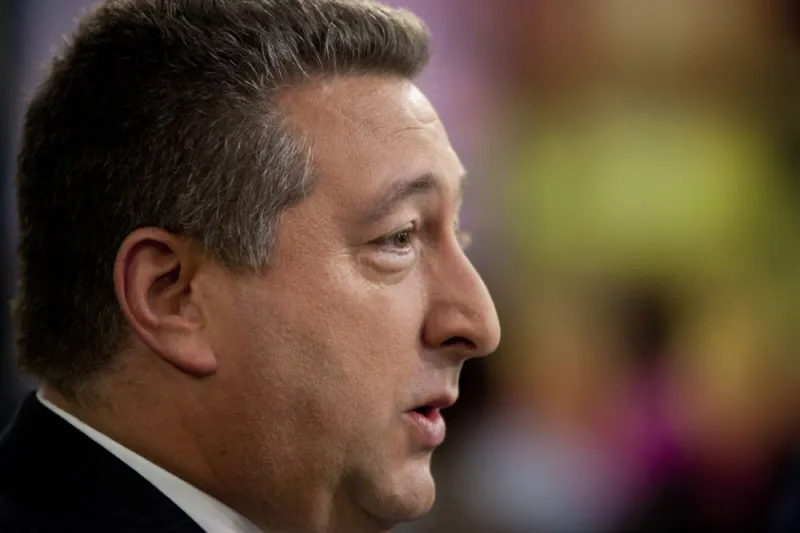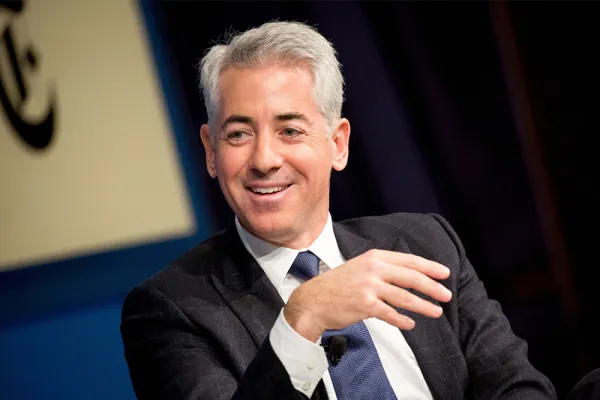On May 25, financial adviser Josh Brown — or as he’s known on #fintwit, @reformedbroker — hit publish on what would become one of his most controversial blog posts.
Entitled “Under Pressure,” the post opened with a lyric from David Bowie’s song, “Five Years”: “News guy wept and told us, Earth was really dying, cried so much his face was wet, then I knew he was not lying.” Brown, the chief executive officer at Ritholtz Wealth Management, didn’t write the post to opine on markets or share his thoughts on the coronavirus pandemic, which he had done almost daily since the crisis began.
Instead, he announced that the RIA firm, which manages nearly $1.3 billion per its latest form ADV, had received a loan from JPMorgan Chase & Co. under the U.S. government’s Paycheck Protection Program. The emergency program, known as PPP, was designed to cover two and a half months of employee payroll for small businesses during the pandemic.
When industry insiders criticized the move, Brown responded via blog, only to receive more criticism, which led to another blog post. Now, just over a month later, Brown and Ritholtz Wealth announced the firm has repaid the PPP loan in full, taking out a new line of credit that is not covered under the government program.
So what exactly happened in the interim? The short answer: Twitter.
Soon after Brown hit publish, his 1.1 million Twitter followers reacted, questioning why a wealth advisory firm that can do most of its work online (as Brown shared in his post), would need a PPP loan with built-in forgiveness.
Daniel Wiener, chairman and co-founder of Newton, Massachusetts-based Adviser Investments, was among those who voiced their concerns. He had already penned a piece for Citywire advising RIAs to avoid taking PPP loans, partly because wealth managers might look hypocritical after advising their own clients to set aside ‘rainy-day’ funds.
On May 28, Wiener tweeted: “By the time #ppploans were available the mkt was -23%, up 11% from the March bottom. We call that a #bearmarket. It happens. Really. @ReformedBroker needed a bailout?”
While some have lauded Brown for his transparency on the matter, others pointed to the irony of asking for a PPP loan. The firm’s namesake, Barry Ritholtz, had published a book critical of bailouts in 2009 in direct response to the global financial crisis.
[II Deep Dive: Josh and Barry Tweet Like Crazy. Are They Revolutionizing RIA Marketing — or Just Wasting Time?]
The wealth advisory firm wasn’t the only one to receive a PPP loan. Form ADVs show that Redwood Investments, Ulrich Investment Consultants, and Larson Financial Group, all of which manage over $1 billion, also received them.
What made Ritholtz Wealth Management stand out is that both Brown and Ritholtz took to the internet to defend the move more than once, before deciding to pay back the loan in full just a month later.
The cleanup began two days after Brown’s initial announcement. Brown published a second blog post on May 27, calling the PPP loan a debt, “not a government loan or a bailout.” Brown wrote that “the benefit of having taken it as a ‘payroll protection’ loan is the lower interest rate, the six-month grace period before repayments start (October), and the potential to apply for forgiveness later if necessary.”
According to the Small Business Administration, PPP loans have an interest rate of one percent, and banks cannot charge fees on these loans. If a loan recipient uses most of the money to cover payroll and keeps workers employed, they can apply for loan forgiveness.
On May 28, the Reformed Broker blog published another post, “explaining how bank loans work.” The post linked to a clip of Brown appearing on Stephanie Ruhle’s MSNBC program, and acknowledged the critiques against the firm.
“Like an idiot, I assumed everyone understood this and that people could read English before forming an opinion and running their mouths off,” the blog post said. “I also assumed that a business owner going into debt in order to keep their operations running smoothly and their people employed would be seen as heroic.”
On June 1, Ritholtz himself finally chimed in. He shared a post on his own blog, The Big Picture, with the aim of clearing up “confusion and misinformation” about the loan. He wrote that he wanted to “distinguish between a bank loan and a bailout.” Unlike the banks that caused the 2008 financial crisis — as he wrote about in his book “Bailout Nation” — he said in his firm did not cause the coronavirus crisis.
“This is a loan, not a bailout,” Ritholtz said in the blog post. “We have no intention of applying for forgiveness of our loan. We do not believe in unearned financial windfalls or free money. Our loan will be fully repaid on time on October 2022.”
Weeks later, the firm paid off the loan. Brown shared in a June 30 blog post that Ritholtz Wealth Management paid back “every cent, plus interest,” and replaced the loan with a traditional line of credit from JPMorgan.
The post was self-reflective: Brown acknowledged that he had learned a lot of lessons during the pandemic and wanted to share them with his blog’s readers.
Brown revealed that he and Wiener spoke over the phone about the loan. According to Brown, Wiener shared the wisdom that “firms like ours would have been better off utilizing standard lines of credit and having preexisting banking relationships already in place for times like these.”
As for the Twitter critics?
“As much as people appreciate your being transparent, they also appreciate having the ability to stomp on your head the minute you make a decision that they disagree with,” Brown wrote. “Being a high-profile person in your industry just magnifies the effect of this.”







